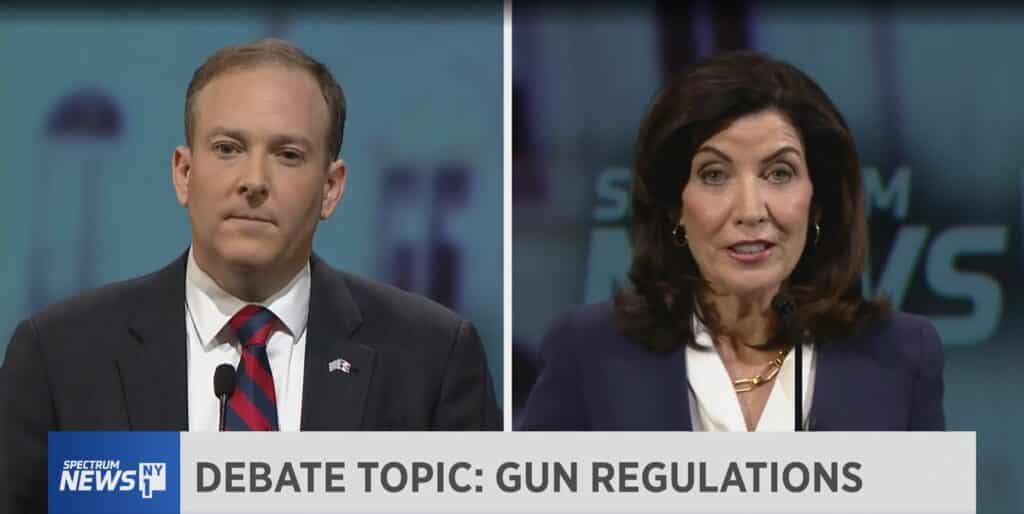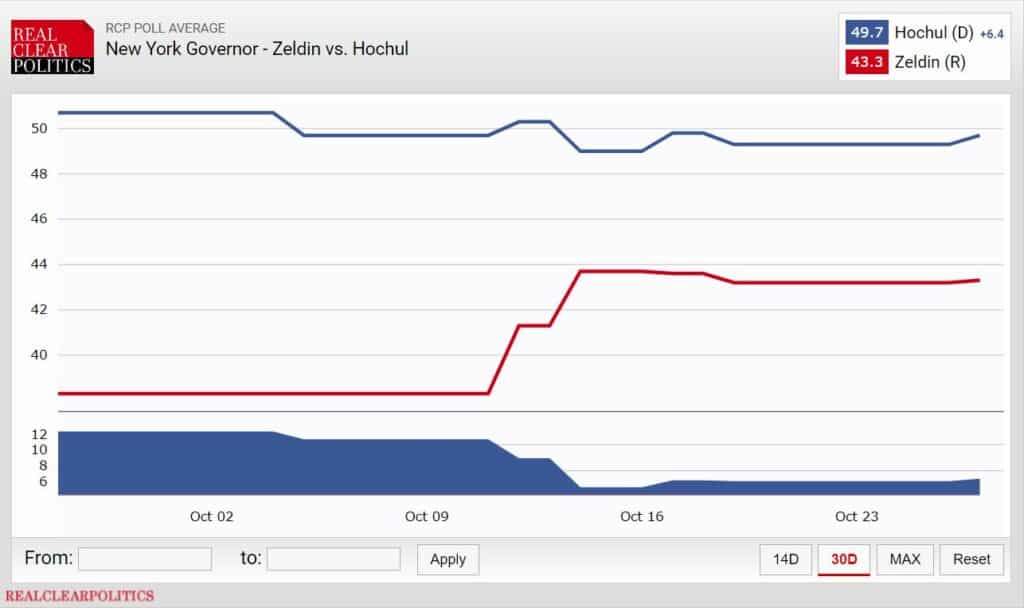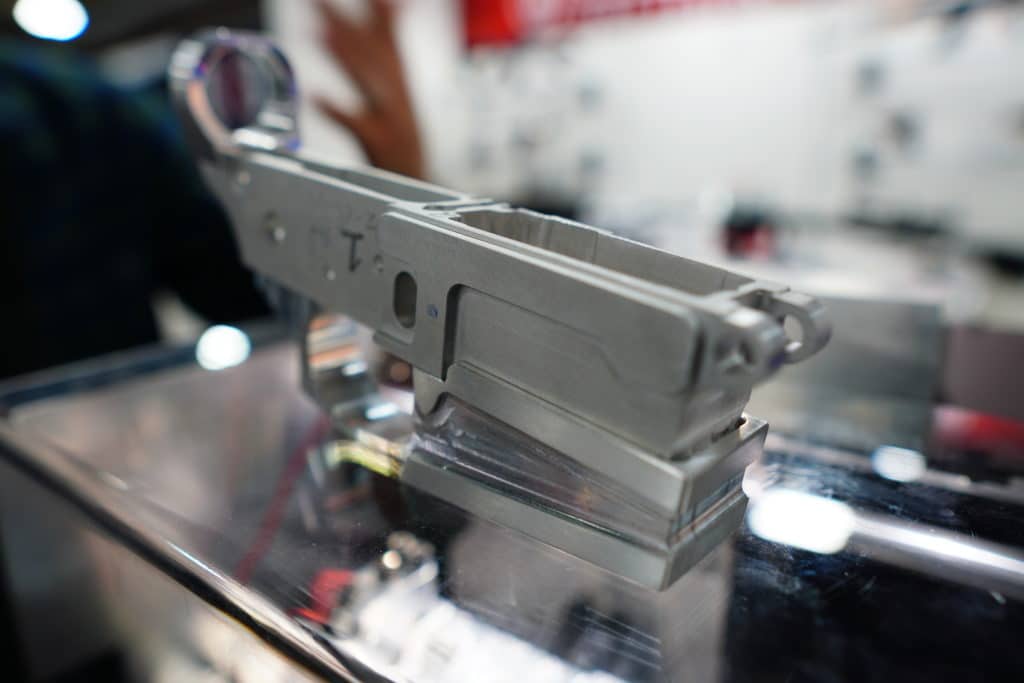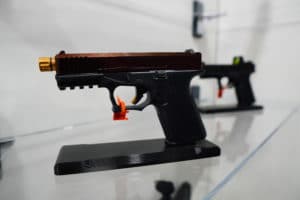We’re getting closer to the midterms, and many races are coming into sharper focus.
We’ve written about how gun policy has fallen far from top of mind for most voters despite capturing a historic level of attention this summer. But that doesn’t mean it won’t prove decisive in more than a few close races. Contributing Writer Jake Fogleman looks at one such gubernatorial election in a surprising state.
Across the country, we’re seeing a new front opened in the war over Bruen. This time a federal judge has come up with a new reasoning for upholding a restrictive modern gun law in California. However, the closer you look at it, the less serious it seems.
I explore why the judge’s opinion reads more like a bad internet ad than a lasting precedent that’s likely to be influential moving forward. Still, it touches on a debate that will be important in post-Bruen litigation.
Plus, Anna Massoglia from Open Secrets joins the podcast to explain where the gun groups are spending their money this election.

Analysis: The Race Where Guns May Yet Play a Decisive Role [Member Exclusive]
By Jake Fogleman
While polling shows gun policy has slipped from the minds of most voters heading toward election day, it may prove key in a budding upset.
New York Governor Kathy Hochul (D.) faces a surprisingly close race in her reelection bid against Republican challenger Lee Zeldin. Over the last 30 days, her double-digit lead in the RealClearPolitics polling average has collapsed by half as early voting is set to begin on Saturday.

The RCP average now gives Hochul around a 6-point lead over her Republican challenger. The latest Quinnipiac poll puts her lead at just four points, well within striking distance in a reliably blue state. In contrast, Andrew Cuomo defeated his Republican challenger by 22-points in 2018.
New York and Governor Hochul have been at the center of national attention on gun policy this year, with little noticeable political benefit. First, a mass shooting at a Buffalo grocery store saw the state crackdown with stricter enforcement of its red flag law. Then, the state’s concealed carry law was struck down in the first major Second Amendment ruling by the Supreme Court in over a decade. The state drew more national headlines by passing the most restrictive concealed-carry law in the nation in response a week later. But several portions of the law have been struck down by multiple federal judges.
And yet, despite this publicity, Hochul finds herself underwater on crime and facing the most competitive New York gubernatorial race in at least a decade. It’s so tough, in fact, that the incumbent Democrat has even taken to referring to herself as an “underdog” in the media, even though a Republican has not governed the state since 2006.
To be clear, Zeldin has not made guns the centerpiece of his campaign. He has focused most of his message on the economy and, especially, rising crime rates.
If the polling in the race is accurate, it makes sense that Zeldin’s strategy would be paying dividends. The Quinnipiac poll finds that New York voters overwhelmingly consider crime their number one issue. It even polled eight points higher than inflation, the second most cited issue in the poll.
In recognition of the fact that she’s losing ground with voters, Hochul has recently begun a new strategy to spin the crime issue in her favor: emphasizing gun control. During the one and only gubernatorial debate held on Tuesday, Hochul attempted to highlight her recent push for new gun restrictions.
“After the horrific massacre in Buffalo that killed ten of my neighbors, I took immediate action to strengthen our Red Flag law and raise the age to buy an AR-15,” a tweet from Hochul’s account sent during the public safety portion of the debate read. “This is what meaningful action against gun violence looks like.”
She tried to undercut her opponent’s crime-heavy messaging by accusing Zeldin of being soft on public safety issues due to his support for gun rights.
“There are three things in life that are true: 1. The sun will rise. 2. The sun will set. 3. Lee Zeldin will oppose commonsense gun safety laws,” her account added.
The debate itself featured a segment on guns. In it, Hochul doubled down on her animosity toward the Supreme Court’s ruling in New York State Rifle and Pistol Association v. Bruen, which struck down the state’s previous concealed-carry regime.
“In the wake of the Supreme Court’s reckless decision on concealed carry, we took swift action to strengthen our gun safety laws,” she said. “It is my job to keep people safe, and I’m not backing down on this — not now, not ever.”
Zeldin voiced support for the Supreme Court’s ruling and attempted to fire back at Hochul’s claims.
“Of course, New York did have an unconstitutional concealed carry law,” he said on the debate stage.
He called the Concealed Carry Improvement Act that Hochul spearheaded in response to the Supreme Court’s ruling “a new law that [is] even more unconstitutional than the last.”
“Instead of going after illegal firearms possessed by criminals, what my opponent—who used to be, by the way, when it was politically convenient, an A-rated NRA endorsed member of Congress—she goes after the law-abiding New Yorkers,” he said.
It remains to be seen if Hochul’s strategy of tying gun control to public safety can successfully assuage the concerns of voters who have been drawn to Zeldin. Her strategy is one that many of the country’s prominent gun-control groups, particularly Everytown for Gun Safety, hoped would catch on nationwide.
But it hasn’t caught on with voters thus far, and there’s no guarantee it will.
Democrats’ registration advantage alone still makes Hochul the favorite to win. If she does manage to lose, it will represent a repudiation by voters of her pivot to go all-in on gun control.
Podcast: Open Secrets’ Anna Massoglia on How the Gun Groups are Spending in 2022 [Member Early Access]
By Stephen Gutowski
The midterms are just over a week away, and the outcome will have a significant impact on the likely hood of new federal gun restrictions.
If Democrats hold control of the House and gain seats in the Senate, the possibility they blow up the filibuster and pass new gun laws rises. If Republicans gain control of either house of Congress, the likelihood of new gun laws falls to near zero.
The gun groups know this, and they’re spending as much as they can to push the outcome in either direction. So, this week, I’ve got Anna Massoglia of Open Secrets on to examine how much those groups have raised, how much they’ve spent, and where they’ve spent it.
Massoglia gave the latest numbers from the NRA, Everytown, Giffords, and Brady. She explained how the NRA is still outpacing its gun-control opponents, but not to the same degree it used to overwhelm them. In 2022, the money fight is closer to parity.
However, the gun-control groups have taken a much broader approach to how they spend their money. They’ve even started to move into races that have nothing to do with gun policy.
Massoglia also gives insight into how groups on each side of the aisle are funded. While the NRA relies on a combination of big-dollar donations and small-dollar donor fees, the gun-control groups are more likely to rely on just the latter. She breaks down what we know about how the groups raise money, and what we can’t know.
Plus, Contributing Writer Jake Fogleman and I cover a new federal ruling upholding California’s “ghost gun” ban.
You can listen to the episode on your favorite podcasting app or by clicking here. Video of the show is also available on our YouTube page. The show goes public on Monday, but Reload members get early access to new episodes on Sunday!
Come on the Podcast
One of the many perks of a Reload membership is the opportunity to appear on the podcast. We’ve had a lot of people on the show from all kinds of backgrounds. It’s one of my favorite segments since it gives us all a better insight into the community that makes this publication possible. If you want to come on the show, just reply to this email and let me know!

Analysis: Federal Judge Finds ‘One Weird Trick’ to Uphold Gun Law Despite Bruen [Member Exclusive]
By Stephen Gutowski
A federal judge just opened a new front in the post-Bruen judicial war over the nation’s gun laws.
Last Friday, Judge George H. Wu upheld California’s attempt to ban possessing unserialized homemade guns and the tools to make them. The reasoning behind the ruling is more interesting than the outcome of the case. Wu found the conduct in question was simply not covered by the plain text of the Second Amendment.
He determined that since the Second Amendment only explicitly mentions the right to “keep and bear” arms, making them (and, presumably, selling or buying or shooting or cleaning or modifying or what have you) is not covered. Therefore, boom, no need to examine whether the regulation has any historical analogue as required under Bruen. No need to look any further.
“Though it leads with a recognition of the primacy of Bruen’s ‘plain text’ point, DD seeks in its opening brief to jump ahead in the analysis to a historical/tradition assessment (and to jump ahead in Bruen to that decision’s discussion of how to conduct such an assessment),” Judge Wu wrote in his ruling rejecting a request for a preliminary injunction against the law. “But it has effectively attempted to avoid the necessary threshold consideration – does the ‘Second Amendment’s plain text’ cover the issue here? No, it plainly does not. AB 1621 has nothing to do with ‘keep[ing]’ or ‘bear[ing]’ arms.”
It’s like a “one weird trick that plaintiffs hate” theory of Bruen.
Of course, there are several shortcomings to this approach. In this particular case, the California law clearly does directly implicate the “keeping” of arms, as the plaintiffs in the case have noted. It defines “precursor” firearms parts as firearms and then bans their possession unless they are serialized and registered. So, the law would seem to demand a historical analysis even under Wu’s logic.
Regardless, the argument that the Second Amendment only protects the literal owning and carrying of guns doesn’t seem like a winner. The idea the Founders intended to let people own firearms and carry them around but not make, sell, buy, or, heck, even shoot them seems too far-fetched to catch on among federal judges.
Other federal courts have repeatedly rejected this basic idea. U.S. District Court Judge Maryellen Noreika blocked a similar Deleware “ghost gun” ban earlier this year under the Bruen standard.
“These statutes burden constitutionally protected conduct because possession of firearms and firearm frames and receivers is within the scope of the Second Amendment’s right to ‘keep and bear Arms’ and Defendant has not shown that these firearms and components are not commonly owned by law-abiding citizens for lawful purposes,” Judge Noreika wrote in her opinion. “Further, Defendant has offered no evidence that these statutes are consistent with the nation’s history of firearm regulation.”
And even before the Supreme Court handed down Bruen, federal judges in Illinois and Pennsylvania ruled the Second Amendment protects shooting ranges.
“The two zoning regulations—the manufacturing-district classification and the distancing rule—dramatically limit the ability to site a shooting range within city limits,” the Seventh Circuit Court of Appeals ruled in 2017’s Ezell v. City of Chicago. “Under the combined effect of these two regulations, only 2.2% of the city’s total acreage is even theoretically available, and the commercial viability of any of these parcels is questionable—so much so that no shooting range yet exists. This severely limits Chicagoans’ Second Amendment right to maintain proficiency in firearm use via target practice at a range.”
However, that doesn’t mean this line of reasoning can’t become influential. There is less likely to be major contention over areas most directly connected to keeping and bearing arms, such as making or selling them. But the scope of Second Amendment protections, especially at the edges, will be an ongoing fight, and the Supreme Court may be hesitant to get directly involved in all of those battles.
Eric Ruben, a law professor at Southern Methodist University who has written extensively on Second Amendment litigation, outlined how Wu’s approach might be applied down the line–even if his ruling doesn’t stand for long.
“I could imagine a sliding scale, like the more regulated conduct is textually covered, the higher the govt’s burden to put forward a regulatory tradition,” he tweeted.
There’s also a practical concern for gun-rights activists who might run up against a judge who attempts to short-circuit Bruen analysis this way. While several federal judges have bucked the traditional partisan markers to rule against restrictions under Bruen, such as Democrat-appointed judges blocking local Colorado “assault weapons bans,” you’re likely to find exceedingly skeptical judges in more liberal federal circuits.
Cody Wilson, founder of plaintiff Defense Distributed, said that’s his biggest concern about what comes next in his case after Wu’s ruling.
“You know what’s gonna happen,” he said. “I’ll notice the appeal, and I’ll get three Democrats on a Ninth Circuit panel. My concern here, and the reason I’m so hot about this, is it’s like, ‘alright, we’re just gonna make Bruen an even narrower test than we created under Heller.’”
Frankly, that’s entirely possible in a circuit that has never struck down a gun regulation. The Supreme Court did take 12 years to follow up its decisions in Heller and McDonald with Bruen despite ample opportunities to intervene well before then. So, some lower court judges may be willing to risk handing down rulings they know likely conflict with what the Supreme Court wants.
But that’s probably not a good bet anymore. After all, Bruen itself was largely a rebuke of how lower courts chose to minimize the impact of Heller. The Court’s makeup has also changed significantly since it last rejected a collection of gun cases. In the year before Bruen, it took a different gun case out of New York. And it has already granted, vacated, and remanded five other gun cases since it decided Bruen.
There is no longer a good reason to think the Supreme Court will allow its new standard of review for gun cases to simply be sidestepped with one weird trick.
That’s it for now.
I’ll talk to you all again soon.
Thanks,
Stephen Gutowski
Founder
The Reload







